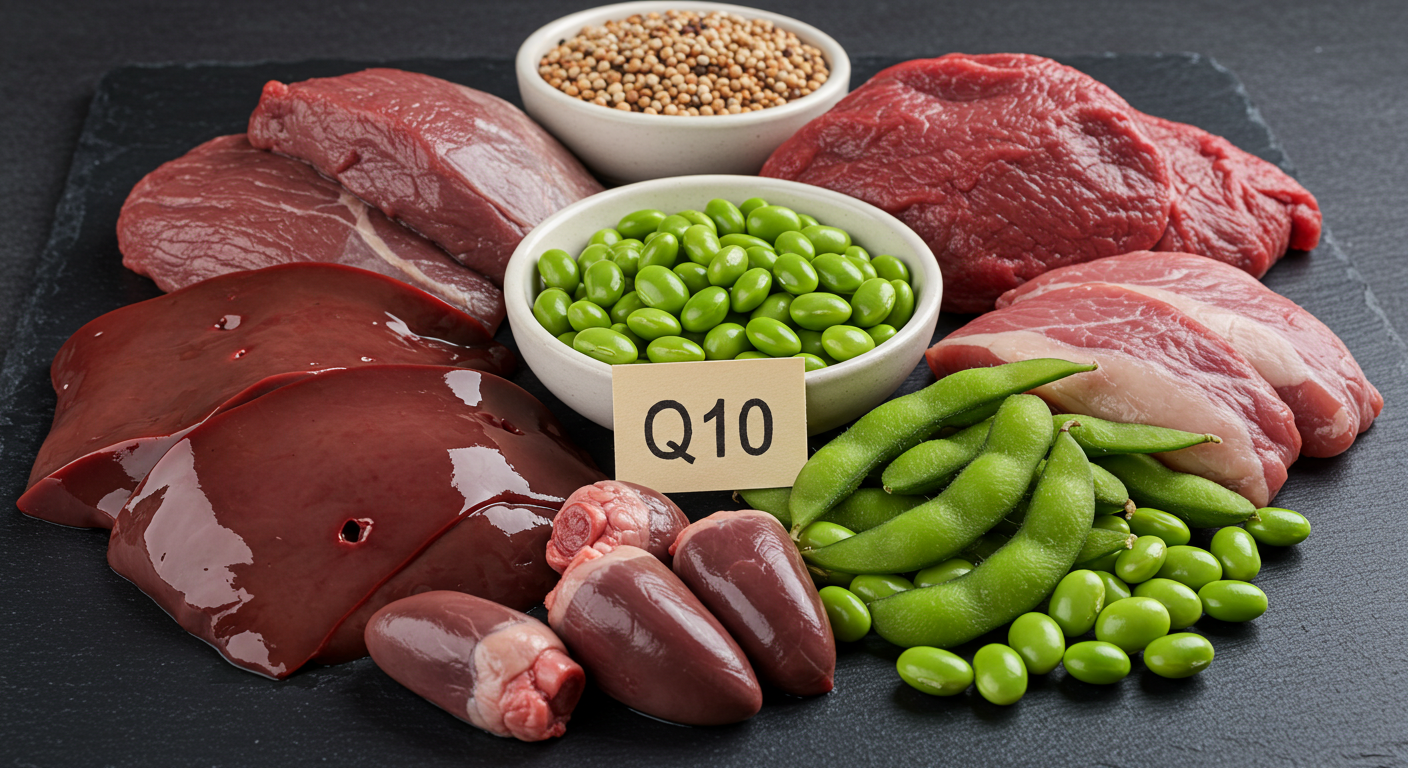Dr. Kumar’s Take:
Coenzyme Q10 (CoQ10) is more than just a supplement—it plays a central role in how our cells create energy, especially in the heart. This comprehensive review from Antioxidants looked at dozens of human studies and found that CoQ10 may help reduce blood pressure, improve cholesterol levels, and even support recovery after heart attacks and heart failure. While results vary depending on the dose and formulation, there’s enough evidence to consider CoQ10 as part of a heart-healthy plan, especially if you’re on statins.
Key Takeaways:
✔ CoQ10 levels drop in people with heart disease, especially those taking statins.
✔ Supplementing with CoQ10 may lower blood pressure and improve cholesterol.
✔ Some studies show CoQ10 may improve symptoms and quality of life in heart failure.
✔ Newer, water-soluble forms of CoQ10 may be better absorbed by the body.
✔ No major side effects were reported in studies using up to 300 mg/day.
Actionable tip:
If you’re taking statins or have cardiovascular concerns, ask your doctor about adding 100–200 mg of CoQ10 daily—preferably with food containing fat to boost absorption.
Brief Summary:
This 2021 review published in Antioxidants examined recent clinical trials on Coenzyme Q10 and its effect on cardiovascular disease (CVD). CoQ10, a powerful antioxidant and energy-producing molecule in cells, appears to support heart health in multiple ways: improving lipid profiles, lowering blood pressure, enhancing endothelial function, and possibly aiding recovery after heart failure or heart attacks. The review highlights how statin medications may reduce the body’s natural CoQ10 levels and how supplementation could help restore balance.
Study Design:
This was a structured literature review focused on human studies from the past five years. The researchers searched PubMed for trials studying CoQ10’s role in major cardiovascular risk factors (like high blood pressure, high cholesterol, and endothelial dysfunction) and cardiovascular diseases (such as coronary artery disease, heart failure, and stroke). They prioritized randomized controlled trials (RCTs), especially those in humans.
Results:
- Cholesterol: CoQ10 helped lower triglycerides and increased HDL (“good cholesterol”) in some patients. Effects on LDL were mixed.
- Blood Pressure: Doses between 100–200 mg/day reduced both systolic and diastolic blood pressure, especially in people with hypertension.
- Endothelial Function: CoQ10 improved how blood vessels responded in patients with heart disease and diabetes.
- Heart Failure: A large RCT (Q-SYMBIO) found 300 mg/day of CoQ10 reduced hospitalizations and deaths over 2 years.
- Heart Attack Recovery: Supplementing after a heart attack improved quality of life and reduced inflammation.
- Peripheral Artery Disease: A small study using MitoQ (a targeted form of CoQ10) improved blood vessel function.
- Stroke: Stroke patients had lower blood levels of CoQ10, though more studies are needed to prove benefit from supplementation.
How CoQ10 Works for the Heart
CoQ10 helps produce ATP, the energy molecule that powers every cell. The heart, which needs lots of energy, depends heavily on CoQ10. It also acts as an antioxidant, protecting cells from damage caused by oxidative stress—especially important in blood vessels and during recovery after heart attacks or strokes.
Importantly, statin drugs (used to lower cholesterol) can block the same pathway that creates CoQ10, potentially leading to muscle pain or fatigue. Supplementation may help prevent these side effects.
Related Studies and Research
L-Carnitine and Heart Health – Examines how L-carnitine supports cardiac metabolism and its role in cardiovascular conditions.
Trans Fats and Heart Disease Risk – Reviews the cardiovascular dangers of trans fats and their regulatory history.
Fibrates and Cardiovascular Risk Reduction – Explores fibrates as a non-statin lipid-lowering option with potential mitochondrial implications.
Mediterranean Diet and Heart Disease – Analyzes how nutrient-rich dietary patterns influence cardiovascular outcomes.
Frequently Asked Questions
Is CoQ10 safe to take with statins?
Yes. In fact, many experts recommend it to offset statin-related CoQ10 depletion and muscle pain.
When should I take CoQ10?
Take it with meals, especially those with some fat, to help with absorption. Morning or midday is usually best to avoid possible insomnia.
How long until I feel a difference?
Benefits like lower blood pressure may be seen in as little as 4–12 weeks. For heart failure or fatigue, improvements may take longer.
What’s the best form of CoQ10?
Ubiquinol is generally better absorbed than ubiquinone. MitoQ targets mitochondria more directly but is newer and more expensive.
Conclusion
CoQ10 shows real promise in helping people with heart conditions, especially those on statins or managing high blood pressure. While it’s not a replacement for medication, it can be a useful add-on with little downside. Talk to your healthcare provider about whether CoQ10 might fit into your heart health plan.


